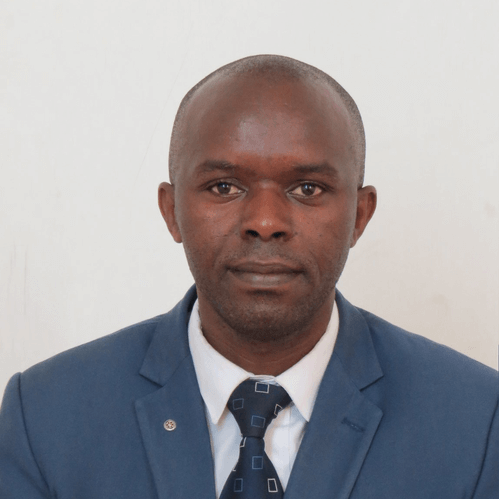Research propels humanity forward. Good research is fueled by curiosity, asks questions, and immerses us in discovering everything there is to know. Research that is well-planned and well-used can enable a country to generate increased economic growth and development. This research holds the key to the progress and development of any nation. Research plays a role in wealth creation, improvement of the quality of life, and real economic growth and transformation in any society. Considering the roles of research in national development, it is imperative to stimulate demand for high-quality research in any country. This article will focus on the benefits of research for Kenya in particular.
Generating Economic Growth
I truly believe that the future economic progress of a country is driven by the invention and application of research. If early civilizations hadn’t been curious about the dark sky, we wouldn’t know anything about space. Decades of research have led us to where we are today: a civilized society with the knowledge and tools to move forward. For many years, policymakers have suspected a close link between economic growth and productive investment in research.
Research has not only led to new products and more efficient production methods, but it has also induced dramatic changes in how countries are organized and managed, highlighting the connections between new ideas and methods and the structure needed to implement them. For example, in the 19th century, the development of the railroad and telegraph, along with a host of other technologies, was associated with the rise of large businesses with national reach.
For any country, research is the engine of its economic and social development. A common concern of all countries for research recognizes their role in ensuring the welfare of human civilization. The level of social development is determined mainly by the performance of its education and research systems, the educational level of its citizens, the quality of research activity products, and equitable access of all potential users to the services and products of this system.
Developmental research provides invaluable contextualized knowledge, insights, and locally relevant recommendations for policy formulation and implementation; solving existential problems; creating technological products; and producing new knowledge that can be adapted for economic, political, and social improvement.
Research holds the key to the present and future development of Kenya, and plays a fundamental role in wealth creation, improvement of the quality of life, and real economic growth and transformation in any society.
Essentially, research is the primary engine of economic growth. It is the key and fundamental requirement for value in addition to raw materials and people. It provides the key to unlocking any country’s potential in terms of decreasing overhead costs associated with outsourcing, and creating employment opportunities. Research will not only prepare the Kenyan youths for fulfilling career prospects, but also train their minds to address social problems with a research mindset.
Addressing Social Problems
Research is intimately connected with development because it has a historical record of bringing advances that have led to healthier, wealthier, longer and more productive lives. Research is a key ingredient to solutions to the most serious poverty alleviation and economic development challenges that we currently face and are likely to face in the future (SM Mwangi, 2017). The many ways in which research impacts poverty alleviation across various sectors merits attention.
Advance in research has facilitated higher yields, greater efficiency, and greater nutritional content in the world’s food supply. Food production, however, must double in the coming decades to meet rising demand and meet the challenges entailed in inter alia improving resistance to drought, pests, salinity, and temperature extremes, raising the nutritional content, and reducing post-harvest loss all in an environmentally and socially sustainable manner.
Research has been central in the progress made to date in the fight against poverty and in stimulating economic growth (G Wainaina, 2020). In the most basic and critical areas of human need, research has made significant progress, and research holds the best prospects for continued progress, particularly with respect to agriculture, health, energy, water, and environmental concerns (S Gitau, 2016).
Addressing Environmental Concerns
Access to affordable energy is essential for people currently living without electricity, and is a prerequisite for economic growth (World Bank, 2021). Further advancement and application of research is needed to find new environmentally and socially sustainable technology that can meet the energy needs of the country.
Other problems, such as the needs of people who live without access to adequate fresh water, or whose health and livelihood are endangered by environmental degradation, call for the development of new research to mitigate these problems and their effects on poor people. Modern clean renewable energy technologies need to be developed further and there needs to be an increase in the efficiency and sustainability of energy use in transportation, industry, and housing.
Water is another vital but scarce resource for which, in the absence of research, current and projected use patterns can only lead to severe crises. Water pollution is expected to continue to degrade freshwater and marine ecosystems, with a significant loss of biodiversity (MOH, 2019). The challenge is to leverage new technologies to provide an adequate supply of safe water in urban and rural areas to all users in a growing-wealthier population: households, agriculture, and industrial sectors.
Environmental degradation at the local, regional, and global scale adversely affects the livelihoods, health, and vulnerability of poor people. Local issues include air pollution and water pollution, regional issues include acid deposition, and global issues include climate change, stratospheric ozone depletion, loss of biological diversity, land degradation, and desertification. These changes in the environment can adversely affect the incomes of poor people who depend on natural resources for their livelihood. These changes may also adversely affect human health through air and water pollution, an increase in exposure to vector-borne diseases such as malaria and dengue, and an increase in the vulnerability of the poor (MOH, 2019).
This article has discussed the benefits of research for Kenya in three main areas: generating economic growth, addressing social problems, and addressing environmental concerns. The need for continued research for development in Kenya is clear.




